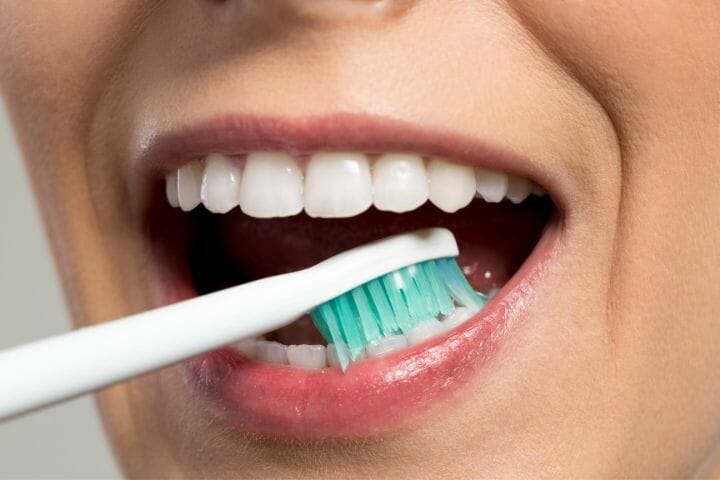Are you experiencing tooth pain and have been diagnosed with fibromyalgia? You may be surprised to learn that there is a connection between these two seemingly unrelated conditions. In this article, we will explore the link between tooth pain and fibromyalgia, understand the symptoms and causes of fibromyalgia, and discuss how fibromyalgia can affect oral health. We will also delve into recent research findings and case studies that support this link, and provide tips for managing tooth pain in fibromyalgia patients. Lastly, we will highlight the crucial role that dentists play in diagnosing fibromyalgia and how they can aid in early detection. By understanding this relationship, you can take proactive steps to manage your oral health and alleviate your tooth pain symptoms.
What is Fibromyalgia?
Fibromyalgia is a chronic condition characterized by widespread musculoskeletal pain, fatigue, and tenderness in specific areas of the body. It is often accompanied by sleep disturbances, memory problems, and mood swings. While the exact cause of fibromyalgia is unknown, researchers believe that a combination of genetic and environmental factors may contribute to its development.
Fibromyalgia affects millions of people worldwide, making it a significant health concern. The condition can have a profound impact on a person’s quality of life, often causing limitations in daily activities and reducing overall well-being.
Symptoms of Fibromyalgia
The symptoms of fibromyalgia can vary from person to person, but some common signs include:
- Widespread muscle pain and stiffness
- Fatigue and low energy levels
- Joint pain and swelling
- Sleep disturbances and insomnia
- Headaches and migraines
- Depression and anxiety
These symptoms can be debilitating and can significantly impact a person’s ability to function on a daily basis. It is important for individuals experiencing these symptoms to seek medical attention for proper diagnosis and treatment.
One lesser-known symptom of fibromyalgia is tooth pain. Studies have shown a possible correlation between fibromyalgia and dental problems. If you experience these symptoms along with tooth pain, it is important to discuss it with your healthcare provider for a proper diagnosis and treatment plan.
Causes and Risk Factors of Fibromyalgia
While the exact cause of fibromyalgia remains unknown, there are several factors that may increase the risk of developing the condition:
- Genetics: Fibromyalgia tends to run in families, suggesting a genetic component. Researchers have identified certain gene variations that may be associated with an increased susceptibility to fibromyalgia.
- Physical or emotional trauma: Some individuals develop fibromyalgia after experiencing a physical injury or significant emotional stress. Traumatic events can trigger the onset of symptoms and contribute to the development of the condition.
- Gender: Women are more likely to develop fibromyalgia than men. The reasons for this gender disparity are not yet fully understood, but hormonal factors and differences in pain processing between genders may play a role.
- Other conditions: Fibromyalgia has been associated with conditions such as arthritis, lupus, and chronic fatigue syndrome. There may be shared underlying mechanisms or risk factors that contribute to the development of these coexisting conditions.
Understanding the potential risk factors can help healthcare providers better diagnose and manage fibromyalgia in patients. It is important to note that while these risk factors may increase the likelihood of developing fibromyalgia, they do not guarantee its occurrence. Further research is needed to fully comprehend the complex interplay of factors involved in the development of this condition.
In conclusion, fibromyalgia is a chronic condition characterized by widespread pain, fatigue, and other associated symptoms. It can have a significant impact on a person’s daily life and overall well-being. Seeking medical attention and working closely with healthcare providers are essential for managing the symptoms and improving quality of life for individuals living with fibromyalgia.
The Connection Between Fibromyalgia and Oral Health
As mentioned earlier, there is a link between fibromyalgia and tooth pain that is often overlooked. Many patients with fibromyalgia experience tooth pain, jaw pain, and mouth-related issues. These symptoms can be attributed to several factors related to fibromyalgia itself and the medications used to manage the condition.
Fibromyalgia and Tooth Pain: An Overlooked Symptom
Studies have shown that individuals with fibromyalgia are more likely to have dental problems, such as tooth decay, tooth sensitivity, and gum disease. The exact mechanisms behind this association are not fully understood, but several theories suggest that the inflammation and immune dysregulation seen in fibromyalgia may contribute to oral health issues.
One theory proposes that the chronic inflammation in fibromyalgia can affect the oral cavity, leading to an increased risk of dental problems. Inflammation can weaken the immune system’s ability to fight off bacteria, making the teeth and gums more susceptible to decay and infection. Additionally, the heightened sensitivity to pain experienced by fibromyalgia patients may amplify the discomfort caused by dental issues, making it even more challenging to manage.
Another theory suggests that the medications commonly used to treat fibromyalgia symptoms may have adverse effects on oral health. For example, antidepressants, which are often prescribed to help manage the emotional aspects of fibromyalgia, can cause dry mouth as a side effect. Dry mouth, or xerostomia, reduces saliva production, which plays a crucial role in maintaining oral health. Saliva helps wash away food particles, neutralize acids, and prevent bacterial overgrowth. Without sufficient saliva, the risk of tooth decay and gum disease increases significantly.
How Fibromyalgia Affects Oral Health
The chronic pain and fatigue associated with fibromyalgia can make it challenging for patients to maintain a consistent oral hygiene routine. The constant discomfort and exhaustion can make brushing and flossing difficult and painful. As a result, plaque and bacteria can accumulate, leading to dental issues such as cavities and gum inflammation.
In addition to the physical challenges, fibromyalgia can also have a psychological impact on oral health. The condition can cause heightened anxiety and depression, which may lead to neglecting oral hygiene practices. Furthermore, the stress of managing a chronic illness can contribute to teeth grinding and clenching, known as bruxism, which can cause tooth damage and jaw pain.
It is crucial for fibromyalgia patients to prioritize their oral health and work closely with their healthcare providers to develop a comprehensive care plan. Regular dental check-ups and cleanings are essential to monitor and address any oral health issues promptly. Patients should also communicate with their dentists about their fibromyalgia diagnosis and the medications they are taking, as this information can help tailor the dental treatment accordingly.
Overall, the connection between fibromyalgia and oral health is a complex and multifaceted one. Understanding and addressing this link can improve the overall well-being of fibromyalgia patients and contribute to their overall quality of life.
Managing Tooth Pain in Fibromyalgia Patients
If you are experiencing tooth pain alongside your fibromyalgia symptoms, there are several steps you can take to alleviate the discomfort and maintain good oral health.
Dental Care Tips for Fibromyalgia Patients
1. Maintain a consistent oral hygiene routine: Brush your teeth twice a day, floss regularly, and use a mouthwash recommended by your dentist.
2. Take breaks as needed: If you experience fatigue or muscle pain while brushing your teeth, take short breaks to rest before continuing.
3. Use a softer toothbrush: Opt for a toothbrush with softer bristles to minimize irritation and sensitivity.
4. Stay hydrated: Drinking enough water can help combat dry mouth, a common side effect of some fibromyalgia medications.
5. Visit your dentist regularly: Regular dental check-ups are crucial in identifying and addressing any oral health issues before they worsen.

Pain Management Techniques
Managing tooth pain in fibromyalgia patients can be challenging due to heightened sensitivity and pain thresholds. However, there are various pain management techniques that can help alleviate discomfort, such as:
- Applying cold or warm compresses to the affected area
- Using over-the-counter pain relievers as recommended by your healthcare provider
- Engaging in relaxation techniques like deep breathing and meditation
- Consulting with a pain specialist for additional guidance and support
Remember to consult your healthcare provider before starting any new pain management techniques or medications.
The Role of Dentists in Diagnosing Fibromyalgia
Dentists play a crucial role in diagnosing fibromyalgia and aiding in its early detection. During routine dental check-ups, dentists can identify potential signs and symptoms that may indicate an underlying condition like fibromyalgia.
Importance of Dental Check-ups
Regular dental check-ups allow dentists to thoroughly examine your oral health, discuss any concerns you may have regarding tooth pain or other symptoms, and conduct appropriate tests or referrals if necessary. By establishing a partnership with your dentist, you can ensure that any potential issues related to fibromyalgia are promptly addressed.
How Dentists Can Help in Early Detection
Dentists are trained to recognize oral signs that may indicate fibromyalgia, such as muscle tenderness, joint stiffness, or narrowing of the opening of the mouth. By identifying these signs, dentists can refer patients to the appropriate healthcare professionals for further evaluation and management of fibromyalgia.
Understanding the link between tooth pain and fibromyalgia is essential for individuals experiencing both conditions. By recognizing the symptoms, managing dental care, and working collaboratively with healthcare providers, individuals with fibromyalgia can improve their oral health and alleviate tooth pain symptoms. Remember, you are not alone in this journey, and there is hope for a brighter, pain-free smile.

